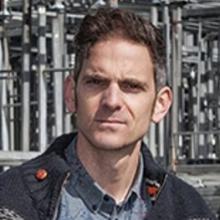The University of Otago is refusing to say whether it is considering breaking with tradition and appointing someone outside the academic world as vice-chancellor.

A spokeswoman said the university had "received a good number of applicants", and the next step in their process involved a thorough review of all applicants.
The job enrolment pack for the position mentioned "personal academic standing" as one of the requirements, rather than specifically being an academic.
Previous vice-chancellors, including Prof David Murdoch - whose resignation in June sparked a global search for his replacement - have also carried out academic research while in the role.
Prof Murdoch specialised in epidemiology, predecessor Prof Harlene Hayne specialised as a researcher in memory development and Prof Sir David Skegg specialised in preventive medicine.
When the Otago Daily Times asked the university whether the description meant the new vice-chancellor had to be an academic, and whether the new vice-chancellor was expected to carry out research, a spokeswoman declined to answer either question.
"Vice-chancellors at the University of Otago have traditionally been academics and free to continue conducting research," the spokeswoman said.
"As part of the current selection process, applicants are being reviewed against a range of personal and professional attributes and experience."
Pushed again over the university’s refusal to confirm whether being a academic was a requirement, the spokeswoman said "because we are going through a formal, confidential recruitment process, it is not appropriate for us to provide any further detail at this time".
Protect Otago Action Group spokesman Dr Olivier Jutel said he believed it was "really important" the new vice-chancellor was an academic.
"We’ve had vice-chancellors in the past who were academics but have tried to bring corporate governance into a public academic institution, and the results have not been good," Dr Jutel said.
He said he wanted the new vice-chancellor to have a sense of "public strategic leadership" that came from valuing the institution as a critic and conscience of society.
Asked whether he thought a non-academic or someone from a business background could do a good job as vice-chancellor, Dr Jutel said "it’s possible, but I don’t see it happening in the current climate".
The appointment of the new vice-chancellor comes at a troubled time for the university, which is going through several "change processes" and restructurings as part of efforts to make permanent cost savings of $60 million from its operating budget.
The ODT understands the majority of university professors - understood to be more than 120 - have signed a letter to the institution’s leadership expressing concern about the way restructuring is being handled.










